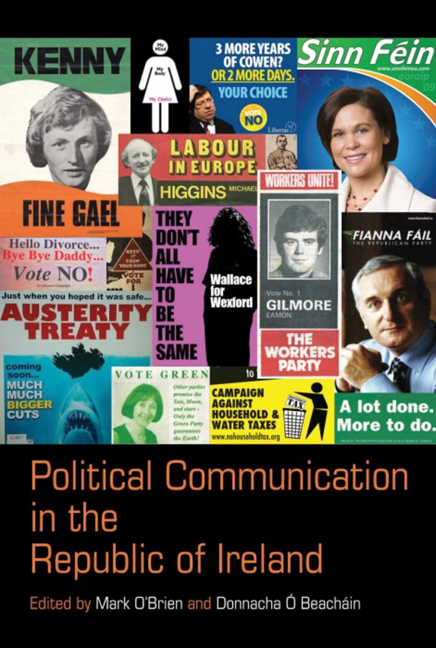Book contents
- Frontmatter
- Contents
- List of Illustrations
- Glossary
- Notes on Contributors
- Acknowledgements
- Introduction
- Part One Political Communication and Politicians
- 1 Political communication: an overview
- 2 Elections and political communication
- 3 A pragmatic partnership: politicians and local media
- 4 Political communication and the ‘loony left’
- Part Two Political Communication and Journalism
- Part Three Political Communication and the Public
- Conclusion
- Index
4 - Political communication and the ‘loony left’
from Part One - Political Communication and Politicians
- Frontmatter
- Contents
- List of Illustrations
- Glossary
- Notes on Contributors
- Acknowledgements
- Introduction
- Part One Political Communication and Politicians
- 1 Political communication: an overview
- 2 Elections and political communication
- 3 A pragmatic partnership: politicians and local media
- 4 Political communication and the ‘loony left’
- Part Two Political Communication and Journalism
- Part Three Political Communication and the Public
- Conclusion
- Index
Summary
For small political groups the challenge of getting their message across is essentially one of resources and imagination. This chapter outlines the challenges and successes of one such small political grouping, the United Left Alliance (ULA), in doing just that. During the 2011 general election, a coalition of left-wing candidates contested seats under the ULA banner. The Alliance comprised members of the Socialist Party, the People Before Profit Alliance, a number of independents, and members of smaller activist groups such as the Tipperary Unemployed Workers’ Movement. Often disparaged by hostile media elements as the ‘loony left’, the ULA put forward 20 candidates in that election and achieved relative success: five of its candidates were elected. But what is the nature of this new political movement and its relationship with the Irish media, and how well did it communicate its message during the 2011 general election?
Beginnings
The ULA was formed in November 2010 prior to the widely anticipated announcement of a general election by the outgoing Fianna Fáil government. Following the Green Party's withdrawal from power, which signalled the final mobilisation towards the ballot box, the Alliance was announced at a press conference held in Dublin's Gresham Hotel. The ULA's website gave its raison d'etre:
[We are] opposed to the government's bailouts and the slash and burn policies which are only making the crisis worse. In the general election we aim to provide a real alternative to the establishment parties as well as Labour and Sinn Féin, who […] refuse to rule out coalition with right wing parties. (ULA homepage)
The movement was thus founded as an umbrella group for those who viewed austerity measures as an unjustified attack on working people. Yet from the outset – as the above excerpt makes clear – the Alliance had one eye trained on the likely coalition that would follow the expected mauling of Fianna Fáil and the Green Party at the polls. The ULA, which viewed the Labour Party as little better than a quisling to socialism, had little doubt that Labour would plump for shared power with Fine Gael once the votes were counted. The longer-term goal was clearly to occupy at least some of the opposition political space vacated by Labour.
Shortly after its announced intention to run candidates, RTÉ's Six-One News programme carried an item that focused on the two men viewed as the movement's leading lights.
- Type
- Chapter
- Information
- Political Communication in the Republic of Ireland , pp. 63 - 76Publisher: Liverpool University PressPrint publication year: 2014



